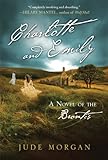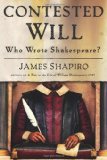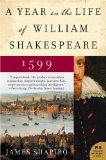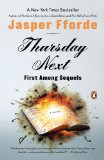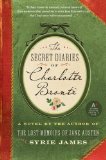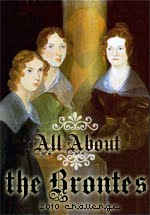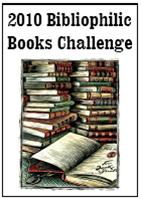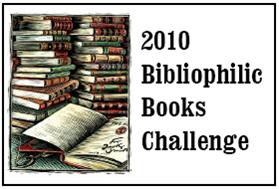I have participated in six reading challenges this year. This late in the game, I probably won’t be adding more unless they run over in to 2011.
Crossed out challenges and books have been completed.
- All About the Brontës: Charlotte and Emily, Wuthering Heights (audio), The Secret Diaries of Charlotte Brontë
- Bibliophilic Books Challenge: Charlotte and Emily, A Year in the Life of William Shakespeare: 1599, The Secret Diaries of Charlotte Brontë, Contested Will: Who Wrote Shakespeare, Thursday Next: First Among Sequels *
- Everything Austen II: Sense and Sensibility, The Three Weissmanns of Westport, Mansfield Park, The Lost Memoirs of Jane Austen, Miss Austen Regrets, Persuasion (audio)
- Once Upon a Time: Jonathan Strange & Mr. Norrell
- R.I.P. V: Mockingjay and The Heretic’s Daughter (will be starting this challenge tonight!)
- Typically British Reading Challenge: The Meaning of Night, The Little Stranger, Charlotte and Emily, Good Omens, Jonathan Strange & Mr. Norrell, Pride and Prejudice, Thursday Next: First Among Sequels, Wuthering Heights (audio)
You know, I would really like to host a reading challenge next year, so I need to think of an idea for one.
* Technically finished at the level I committed, but if I read one more book, I can move up a level in the challenge.

